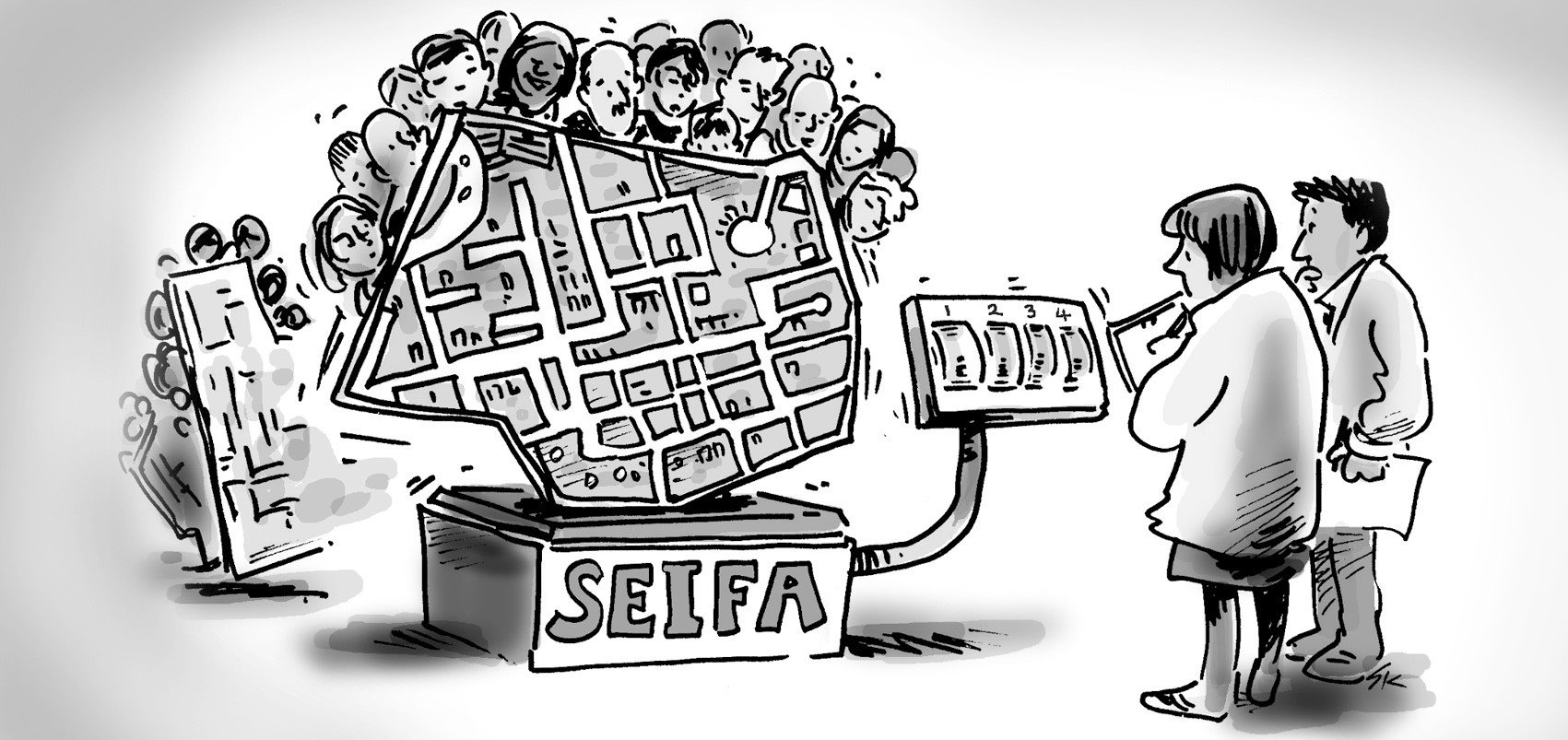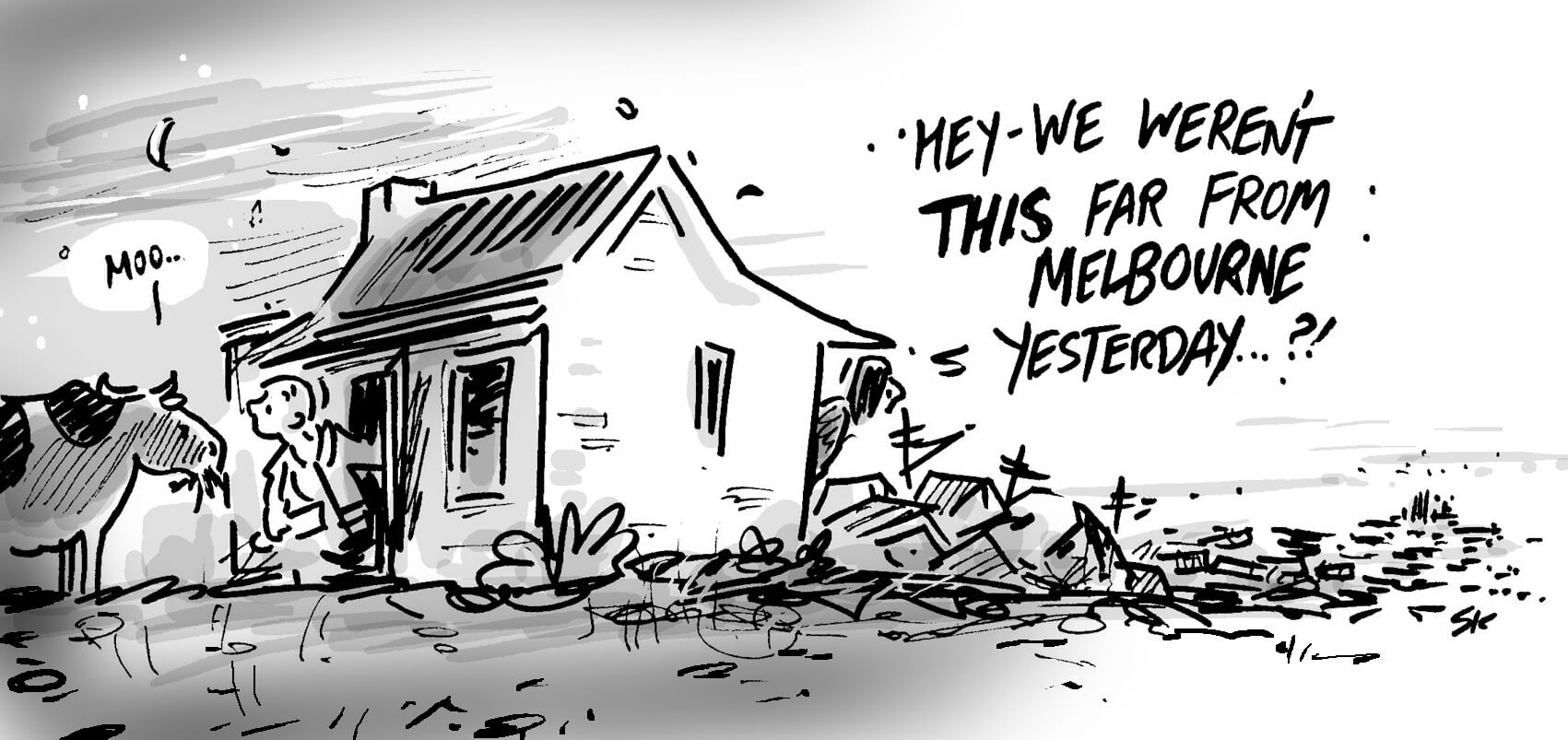In the wake of the announcement of Victoria’s 6th lockdown – with Sydney, the NSW Hunter Region and South East Queensland already in lockdown – it’s clear that large segments of the Australian population will be under lockdown restrictions on Census night. So how will Census data be affected by lockdowns? Also included: guidance on responding to related Census questions.
Keep up-to-date on all Census 2021 news.
A year ago, during Melbourne’s longest lockdown (what we call “Lockdown #2”), I was thinking, “Wow, it’s only a year to the 2021 Census. Imagine if Census was this year and we were in lockdown? It would be hard to conduct, and could completely change the data.” It was hard to imagine that we’d be still doing this at Census time. The COVID-19 pandemic has affected everyone’s lives profoundly, unable to plan for most things, unable to travel, with periods of isolation. At .id we’ve been working from home almost exclusively for the past 16 months, with a few brief forays into our office in Collingwood. With the majority of staff based in Melbourne, we’ve been largely unable to see our clients in person, apart from a brief window around March/April this year, and have been supporting our Local Government users via phone, email and remote meetings on Zoom and Microsoft Teams.
As I write this, the whole state of Victoria has just entered Lockdown #6, which is ostensibly for 7 days (but all bar one of the previous lockdowns has been extended), and covers Census night (which August 10th, for anyone who hasn’t been paying attention!). All lockdowns involve some sort of “stay at home” rules, with a variable number of essential reasons to leave home. Various types of business closures, limits on distance we’re able to travel from home, number of household visitors and time allowed outside for exercise are features of lockdowns which vary from place to place – but the stay home order is the defining feature. With Sydney and the Hunter Region in NSW in a long lockdown, which is going at least to the end of August, and South East Queensland also locked down until at least Sunday (again, may well be extended to cover Census night), we’re going to have up to 60% of Australia’s population under lockdown/stay at home orders for Census night 2021.
Census remains the most important dataset for local area demographic information, and we only get one every 5 years. So, Census-in-lockdown is now a reality for 2021. What does it mean for the data, due for release in mid-2022?
How will the Census be collected during lockdowns?
At first glance, lockdown is actually “good” for Census collection. Ideally you want to catch everyone at home with as many as possible at their usual address. But it doesn’t make everything easy when a pandemic is the reason for people being home.
The ABS has a range of contingency plans for actually collecting the Census during a lockdown. I’m not sure that they anticipated applying them for such a large segment of the population, but they will be implemented. The main one is their expectation of 75% online return, which is completely contactless. They’ve been encouraging people to fill in the form as soon as their receive their access codes in the mail – I know many people who’ve already submitted their Census (as of 6/8/2021). For others, forms will be dropped off and picked up without any interaction with the household. It may affect followup on those households who haven’t completed the form, however, as this usually requires personal interaction.
What are the potential impacts of lockdowns on Census data?
Most of the questions on the Census are going to be unaffected by lockdowns. For example, lockdown isn’t going to have any affect on a person’s:
- age
- household type
- education level
- religion
- birthplace
- dwelling structure
- etc…
Counted at home, not elsewhere
Some aspects of the Census will be a little different. For example, with everyone under stay at home orders in lockdown areas, a greater proportion of people will likely be counted at their usual address than normal. However, last Census, more than 95% were counted at home anyway, so this isn’t going to be a massive difference. There are likely to be less households with visitors from other households on Census night. This generally isn’t permitted in lockdowns, so if anyone does have a visitor around overnight, they might be less inclined to state this on their Census form. (As always, however, we stress that Census data are completely confidential, and the ABS doesn’t share information about individuals with any other government department.)
Employment and income questions
Most of the questions which will be affected by lockdown relate to employment and income. The ABS have put together a handy set of guidelines for answering the questions if you’re in lockdown. They’re on the Census website, but could do with further publicising!
Income – unaffected
Some people may temporarily have lower income due to COVID-19, or be receiving support payments. The guidelines specifically say to state your usual income from all sources, so this questions should still reflect a good baseline for income across the population.
Employment status and hours worked – potentially affected
If someone is employed, they will still state this on the Census form, but the guidelines state that if they’re unable to work due to COVID-19 restrictions, they should answer “Yes, but absent from work on holidays, paid leave…”. This will affect the Hours Worked and part of the Employment Status question (which always refer to the week prior to Census). If people couldn’t work in this week, we may see an increase in “Employed, away from work” and “Worked zero hours” categories, which may affect the calculation of full- and part-time work.
Place of work – largely unaffected
I’ve seen several people saying that place of work data (otherwise known as “Journey to Work”, when combined with place of residence) will be affected. With many people temporarily working from home due to COVID-19, will everyone just state their home address as their workplace? They shouldn’t – the question specifically asks the employer’s workplace address, and the guidelines state, “If you are currently working from home due to COVID restrictions, but usually attend a workplace, please write the employer’s usual workplace address.” This is pretty clear and should still result in meaningful Journey to Work information (which perhaps reflects more of a baseline situation based on address of the office). I’ll be writing the .id office address as my place of work, even though I’ve been 90% working from home for the last 16 months due to the pandemic. There will almost certainly be an increase in people working locally but will hopefully reflect more of a genuine new baseline – those who’ve made a permanent change and those businesses which no longer have an office.
Method of travel to work – heavily affected
This is the one topic which is going to see a large impact from lockdowns. The Census question is crystal clear: “How did the person get to work on Tuesday 10th August, 2021?”. On that specific day. In 2016, 4.7% of Australia’s population worked at home and 9.4% didn’t go to work on Census day, and Keenan has recently written about the shift to working from home long-term, but lockdowns will clearly affect the data gathered this time around.
There will be a greater proportion of people in both the “Worked at home” and “Did not go to work” categories. While it doesn’t affect what your job is or where it is, lockdown affects how you get there, and this dataset is likely to be not comparable to previous Censuses due to lockdown. Best estimates are that Work-from-home is maybe 20% of the workforce long-term, but for areas under lockdown this may well be about 40–50%; “Did not go to work?” could double to 20% in those areas. For the rest of the country, the data should still form a solid baseline of propensity for working from home post-pandemic.
It’s worth noting that this question has always been affected by what happens on the day (eg. bad weather on Census day can reduce the number of people riding their bike to work). The New Zealand Census asks usual method, but Australia has always been on a specific day.
Educational institution attending – unaffected
The guidelines state to mark the type of education your child usually attends, even if they are remote learning at the moment. This question doesn’t even record education address, only type of institution (primary, secondary, TAFE, uni etc.) so there shouldn’t be much impact here.
In summary…
So, with predominantly online collection, and most people at home, answers to most questions on the Census don’t change, but there will undoubtedly be some impact on a few questions, mainly employment related, and definitely Method of Travel to Work.
The pandemic Census of 2021 is going to be a unique snapshot of this time in history. The Australian Census in 2021 follows the UK 2021 and USA 2020 Censuses, so we’re far from the first to do one in the pandemic. It will be very usable, and provide a fantastic insight into how our society has changed in the past 5 years (particularly the last year and a half). With the first data relase scheduled for June 2022, .id will be looking very closely at the output for inclusion on our clients’ online toolkits. We’ll make sure everyone is aware of any data caveats, ensuring you can have confidence in using the data to inform your decisions. Watch this space!








